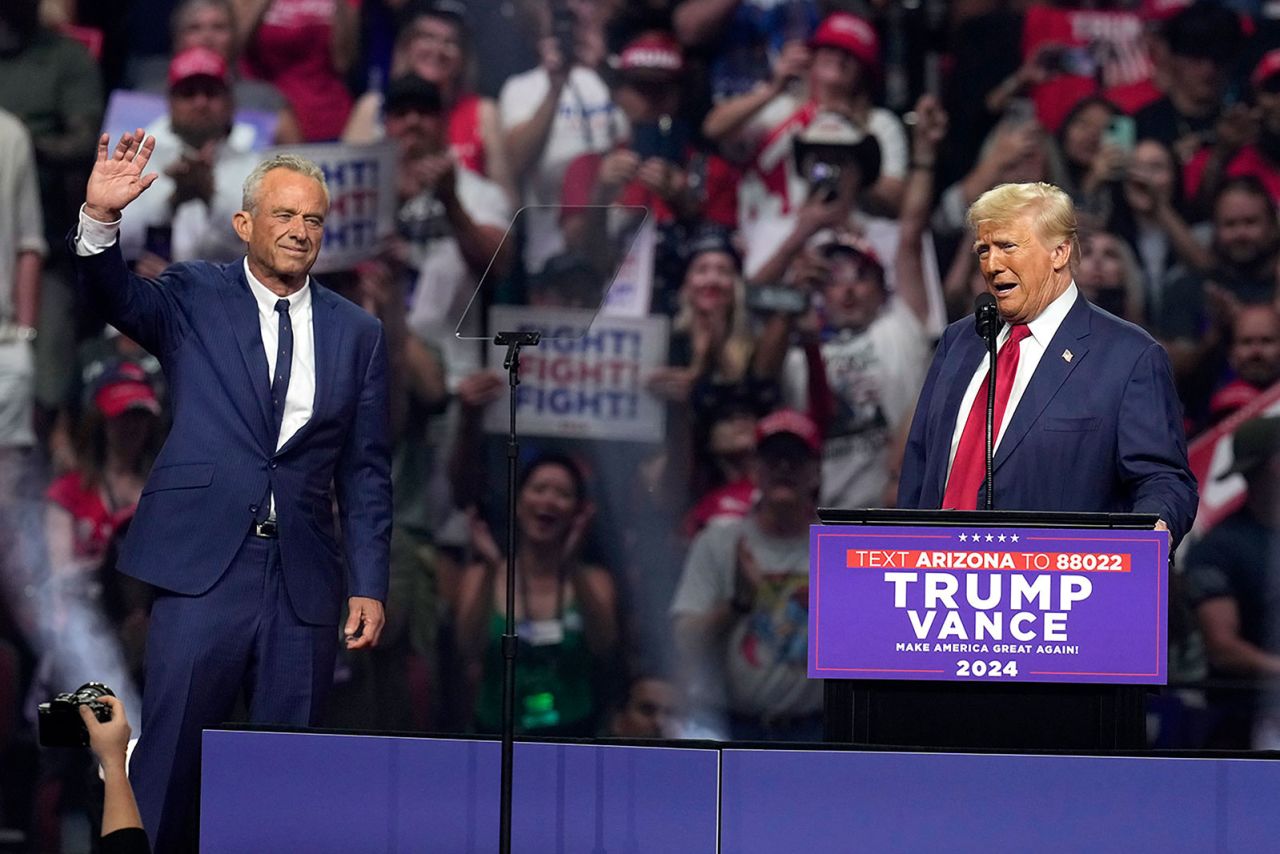Robert F. Kennedy Jr. announced that he is suspending his independent campaign for the presidency and endorsing Donald Trump, a move that could slightly bolster Trump’s support base. This development was made public during a rally in Arizona, where Kennedy appeared on stage alongside Trump, receiving enthusiastic cheers from the crowd.
Kennedy’s decision was influenced by internal polling that suggested his candidacy would negatively impact Trump’s chances while benefiting the Democratic nominee, Kamala Harris.
Kennedy pointed to key issues like free speech, the conflict in Ukraine, and concerns about children’s welfare as driving factors behind his decision to support Trump. While Kennedy has started the process of withdrawing from the ballot in some battleground states, he has not officially ended his campaign.
He left the door open for his supporters to continue backing him in states where their votes are unlikely to change the election’s outcome. His endorsement followed discussions with Trump, where Kennedy hinted at a potential role in a future Trump administration, though specifics were not disclosed.

Robert F. Kennedy Jr. Ends Independent Presidential Run, Surprises by Endorsing Donald Trump at Rally
The announcement created a wave of confusion and mixed signals from Kennedy’s team. Just before the rally, a court filing incorrectly suggested Kennedy would endorse Trump, which was later clarified by his spokesperson.
At the Arizona rally, Kennedy spoke at length about his dissatisfaction with the Democratic Party and eventually endorsed Trump. The event featured high energy, with Kennedy receiving a warm welcome from the crowd and being introduced by Trump, who praised Kennedy’s contributions to important national issues.
This endorsement is particularly surprising given the Kennedy family’s long-standing association with Democratic politics. Members of Kennedy’s family publicly condemned his decision, describing it as a betrayal of the family’s values. Kennedy acknowledged that his endorsement of Trump caused strain within his family but maintained that he felt compelled to take this step, despite the personal difficulties it caused.
In response, the Harris campaign made efforts to reach out to Kennedy’s supporters, aiming to gain their support in the upcoming election. Some of Kennedy’s supporters, like Casey Westerman, indicated that they would follow his lead and back Trump, reflecting their trust in Kennedy’s judgment.
Initially running as a Democrat before switching to an independent bid, Kennedy attracted a significant base of anti-establishment and vaccine-skeptic voters, though his campaign faced financial and legal challenges.
Polls have shown that Kennedy’s support has been modest, generally in the mid-single digits, with some indications that his candidacy might have posed a greater challenge to Trump than Harris. However, his endorsement could now shift the dynamics slightly, potentially bringing some of his supporters over to Trump’s side, especially those who view both candidates favorably.
